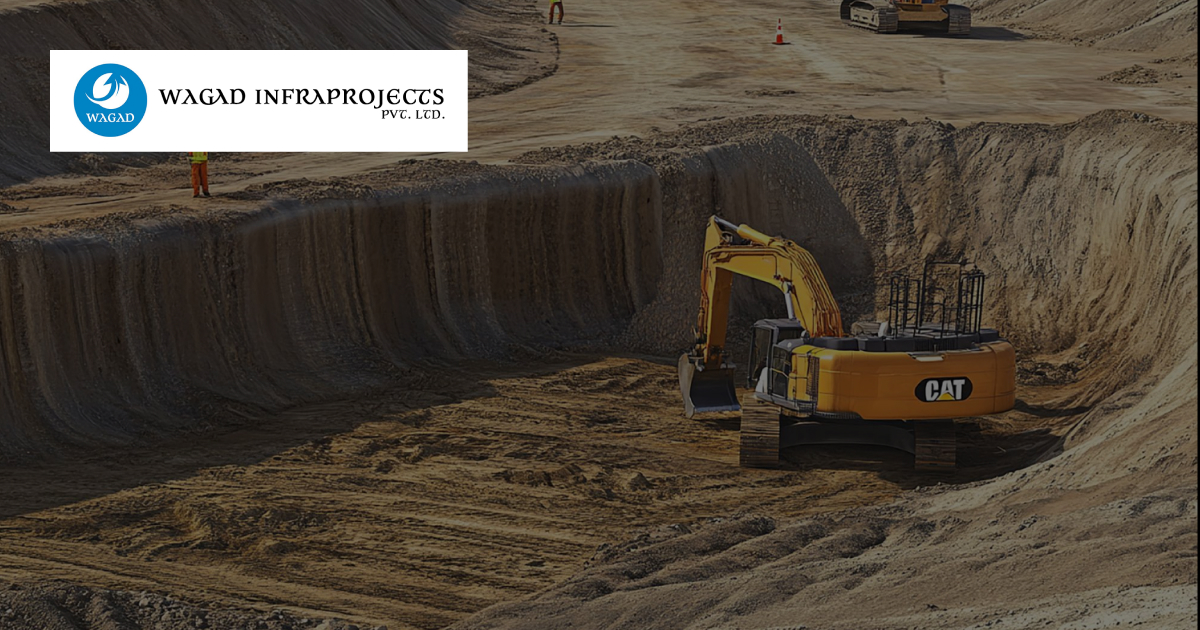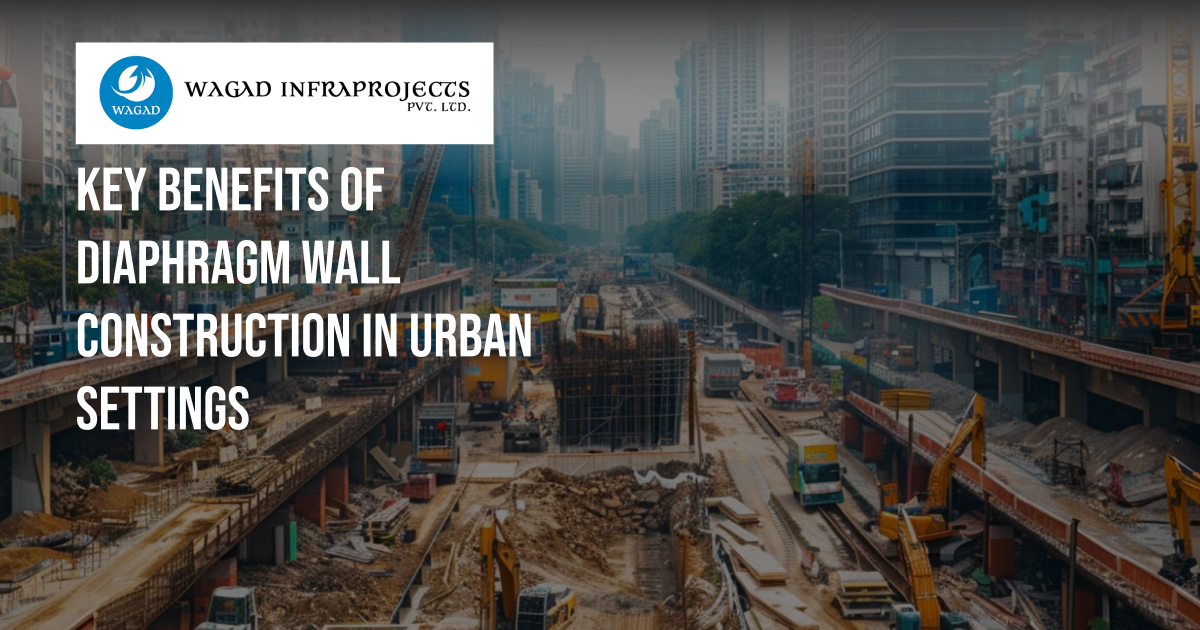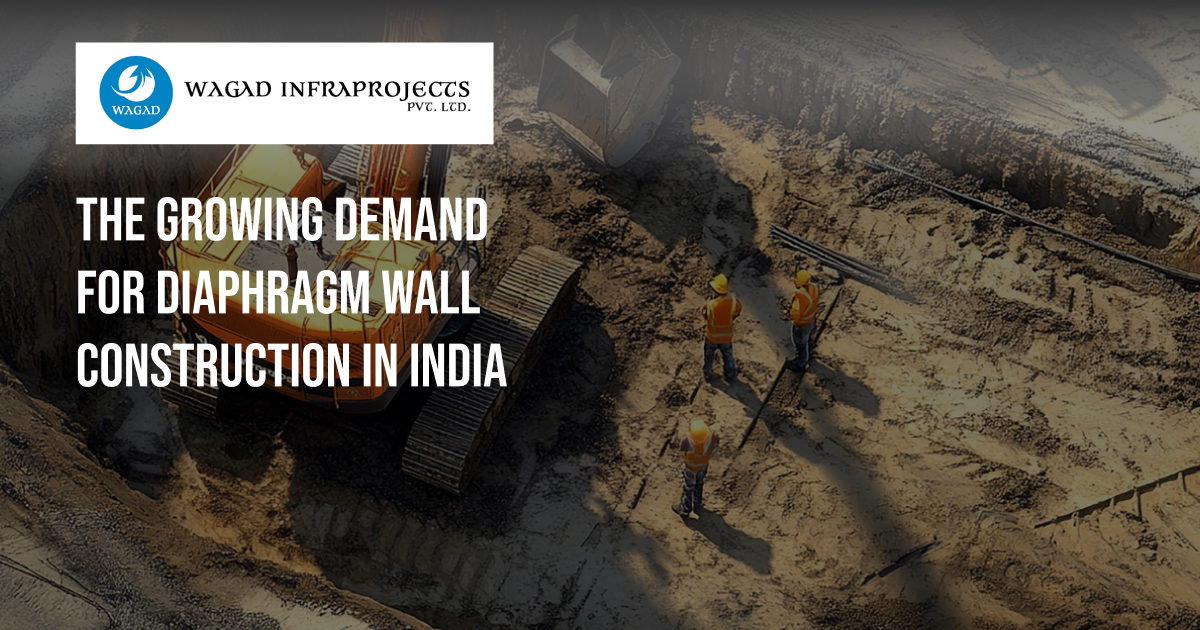
Why Diaphragm Walls are Essential for Urban Real Estate Development
Urban real estate development is a complex and multifaceted process that requires innovative solutions to address the unique challenges of dense city environments. As cities continue to expand, the need for effective and efficient construction methods becomes increasingly important. Among these solutions, Diaphragm wall construction in India has emerged as a critical component in foundation construction, providing stability and durability in challenging conditions. In this blog post, we will explore the importance of diaphragm walls in urban real estate development, specifically focusing on their implementation across various Indian cities and the advantages they offer.
Understanding Diaphragm Walls
Diaphragm walls are reinforced concrete structures that are constructed below ground level, acting as retaining walls that support the excavation of soil. These walls are designed to withstand horizontal pressures from soil and water, making them particularly effective in urban settings where space is limited, and the risk of soil movement is high. The construction of diaphragm walls involves specialized equipment and techniques, including the use of trenching machines and hydraulic grab systems, which allows for a highly efficient and effective solution for foundation stability. Given their robust design and construction methods, diaphragm walls can be essential in various types of urban projects, from high-rise buildings to expansive commercial complexes.
Key Benefits of Diaphragm Wall Construction in Urban Settings

-
- Space Efficiency
In crowded urban areas like Gurgaon and Ahmedabad, the availability of land is often limited. Diaphragm wall construction in India allows for deep excavation while maintaining a small footprint. This is particularly beneficial in high-density locations, enabling developers to maximize the use of available land. By utilizing diaphragm walls, construction projects can achieve greater depth for basements and underground facilities without the extensive land disturbance typically associated with traditional retaining walls. This efficient use of space translates into enhanced project feasibility and profitability.p>
- Soil Stabilization
One of the most critical aspects of urban construction is soil stabilization. Diaphragm walls provide excellent soil stabilization, preventing soil erosion and reducing the risk of landslides during construction. This is crucial in urban environments where underground water tables and varying soil types can pose significant risks to construction projects. The ability of diaphragm walls to retain soil effectively means that they can safeguard surrounding structures and prevent soil collapse, ensuring safety and integrity throughout the construction process.
- Noise and Vibration Reduction
Urban construction often faces challenges related to noise and vibrations that can disrupt surrounding areas. Diaphragm wall construction minimizes these impacts due to its quieter and less disruptive installation methods compared to traditional methods, making it a more community-friendly option. This aspect is especially important in densely populated areas, where residents and businesses are sensitive to construction noise. By employing diaphragm walls, contractors can contribute to a more harmonious construction process that respects the surrounding community’s peace and quiet.
- Environmental Benefits
The use of diaphragm walls can have a positive environmental impact. Their construction methods often generate less waste and require fewer materials than other foundation types. Additionally, they can help manage groundwater levels, reducing the risk of flooding in urban areas. By minimizing material usage and optimizing construction practices, diaphragm wall projects can adhere to sustainable construction principles. This eco-friendly approach not only supports local regulations but also enhances the overall reputation of construction firms committed to environmental stewardship.
- Versatility and Adaptability
Diaphragm walls can be adapted for various urban projects, including residential buildings, commercial complexes, and infrastructure development. This versatility allows them to meet the unique demands of different projects in cities like Gurgaon and Ahmedabad. Whether it’s a high-rise office building or an underground parking facility, diaphragm walls can provide tailored solutions that align with specific project requirements. Their adaptability to various soil conditions and structural needs makes them an ideal choice for developers looking to innovate in their construction practices.
- Space Efficiency
The Growing Demand for Diaphragm Wall Construction in India

As urbanization accelerates in India, the demand for Diaphragm wall construction in India is on the rise. Cities such as Gurgaon, known for their rapid development, are witnessing an increased focus on sustainable construction practices that minimize land use while maximizing structural integrity. The growth of the real estate sector in these urban centers necessitates advanced construction solutions that can effectively address land constraints and environmental challenges. Similarly, Ahmedabad’s growing infrastructure needs highlight the necessity of employing diaphragm walls in new projects, ensuring that development keeps pace with the increasing urban population.
Choosing the Right Diaphragm Wall Construction Services
When selecting a contractor for Diaphragm wall construction in India, it’s essential to consider the following factors:
Why Choose Professional Diaphragm Wall Construction Services?
-
Experience and Expertise: Look for a construction company with a proven track record in diaphragm wall projects. A contractor with extensive experience will be better equipped to navigate the complexities of urban construction.
-
Technology and Equipment: Ensure that the contractor uses the latest technology and equipment for efficient construction. Advanced machinery can significantly enhance the quality and speed of diaphragm wall installation.
-
Sustainability Practices: Choose a company that prioritizes environmentally friendly practices in its construction processes. Contractors that adopt sustainable methods contribute positively to the community and the environment.
Conclusion
Diaphragm wall construction in India is becoming increasingly vital for urban real estate development, especially in rapidly growing cities like Gurgaon and Ahmedabad. Their ability to provide stability, efficiency, and environmental benefits makes them an ideal choice for modern construction projects. As developers seek innovative solutions to navigate the complexities of urban environments, diaphragm walls will undoubtedly play a crucial role in shaping the future of urban infrastructure.
By embracing the advantages of diaphragm wall construction, developers can ensure the longevity and sustainability of their projects, contributing positively to the urban landscape in India. If you’re considering a construction project that requires robust foundation solutions, exploring Diaphragm wall construction in Gurgaon can be your key to success. The strategic implementation of diaphragm walls not only enhances structural integrity but also fosters sustainable urban development, paving the way for a brighter future in India’s urban real estate market.